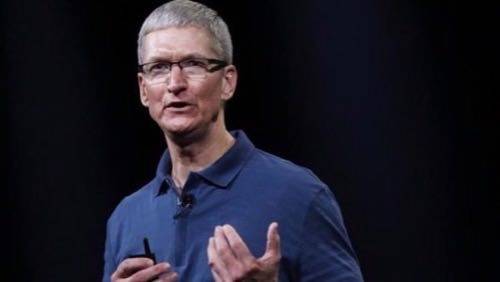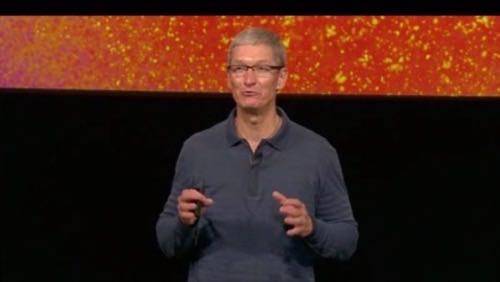
Josh Tyrangiel at Bloomberg Business week published a huge interview with Apple CEO Tim Cook Thursday. Apple has a unique position in the world, so it’s automatically worth reading this interview. Though much of it is insubstantial, there are a few key points that speak volumes about Cook and Apple.
Cook Is An Apple Product Incarnate
The beginning of the interview attempts to probe Cook’s personality. Tyrangiel doesn’t get much out of him. “I hate talking about me,” Cook says. He identifies as much as he can with the company itself, and he’d prefer to talk about that.
But Tyrangiel gets Cook talking for just a moment by asking him about fame, and Cook responds, “I don’t feel famous. You know, I lead a simple life. My life is incredibly simple.”
Incredibly simple. It’s a bizarre description. It sounds like it came right out of an Apple keynote. “Incredibly simple. Amazingly beautiful. Unbelievably revolutionary.” Apple’s over-the-top, adverb-y language is probably best characterized by the Steve Jobs-ism “insanely great.”
I think it’s remarkable that, in a rare moment of public introspection, a company’s leader would describe his own life in the exact same language he uses to describe his products. It’s kind of vapid, but it’s also impressively single-minded.
Oceania Had Always Collaborated With Eurasia
When the conversation turns to interpersonal relationships among Apple’s leadership cadre, Cook is similarly evasive. Rather than talk about the tension, he turns a question about firing Scott Forstall and John Browett into one about management philosophy. His answer:
“The key in the change that you’re referencing is my deep belief that collaboration is essential for innovation—and I didn’t just start believing that. I’ve always believed that. It’s always been a core belief at Apple. Steve very deeply believed this. … So how do we keep doing that and keep taking it to an even higher level? You have to be an A-plus at collaboration. And so the changes that we made get us to a whole new level of collaboration.”
That’s a very nice spin move. But I think the most interesting part is where Cook says that “Steve very deeply believed” in collaboration. That may have been true on some level — Cook would certainly know better than I — but it seems to belie all the stories about Jobs as a controlling, tyrannical leader. We heard similar stories about Forstall comparing him to Jobs. Cook brought about a more profound change than it sounds like from the interview he gave.

Return Of The Mac
As Cook readily admits, a lot has changed at Apple. “Apple has changed every day since I have been here,” he says. But he maintains that “the DNA” is the same. Fortunately for the faithful, Cook offers some substantive points.
“We don’t subscribe to the vision that the OS for iPhones and iPads should be the same as Mac,” he tells Tyrangiel. “Customers want iOS and Mac OS X to work together seamlessly, not to be the same, but to work together seamlessly.” That doesn’t sound like something Cook would say if this complete merging of OS X and iOS people keep blogging about was actually going to happen.
That tidbit is paired with some interesting news that Apple is “going to bring some production to the U.S. on the Mac” next year. Cook acknowledges some patriotic responsibility to ensure that Apple creates broader wealth and well-being.
He describes this, as well as efforts to clean up labor practices at the overseas manufacturers, with the same John F. Kennedy reference he uses to describe the company’s matching program for employees’ charitable contributions: “To whom much is given, much is expected.”
Lead image courtesy of Reuters.

















